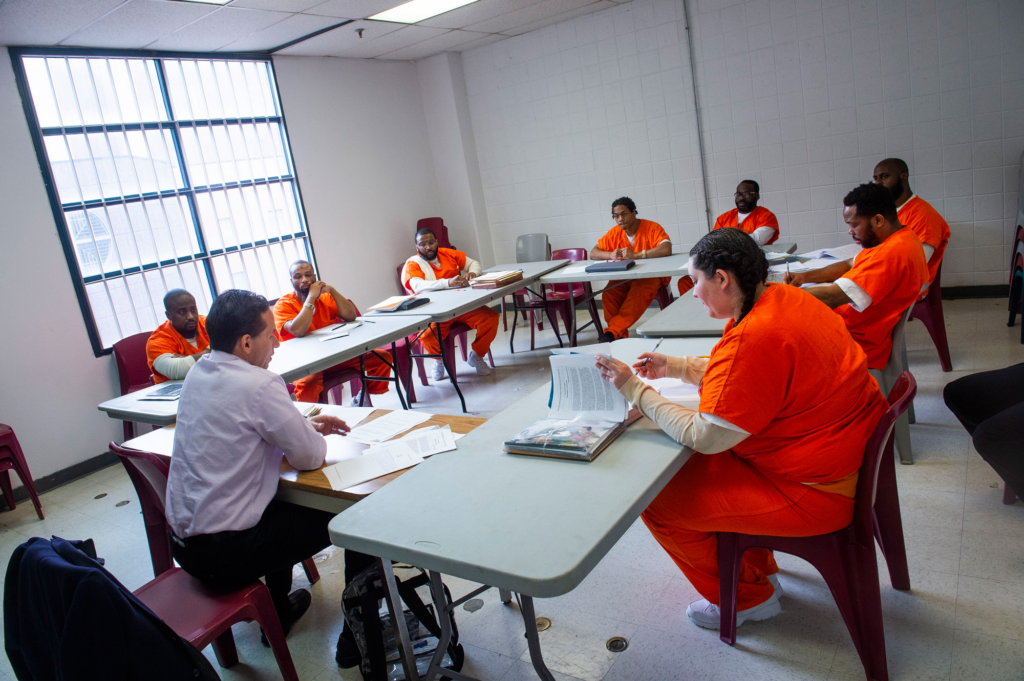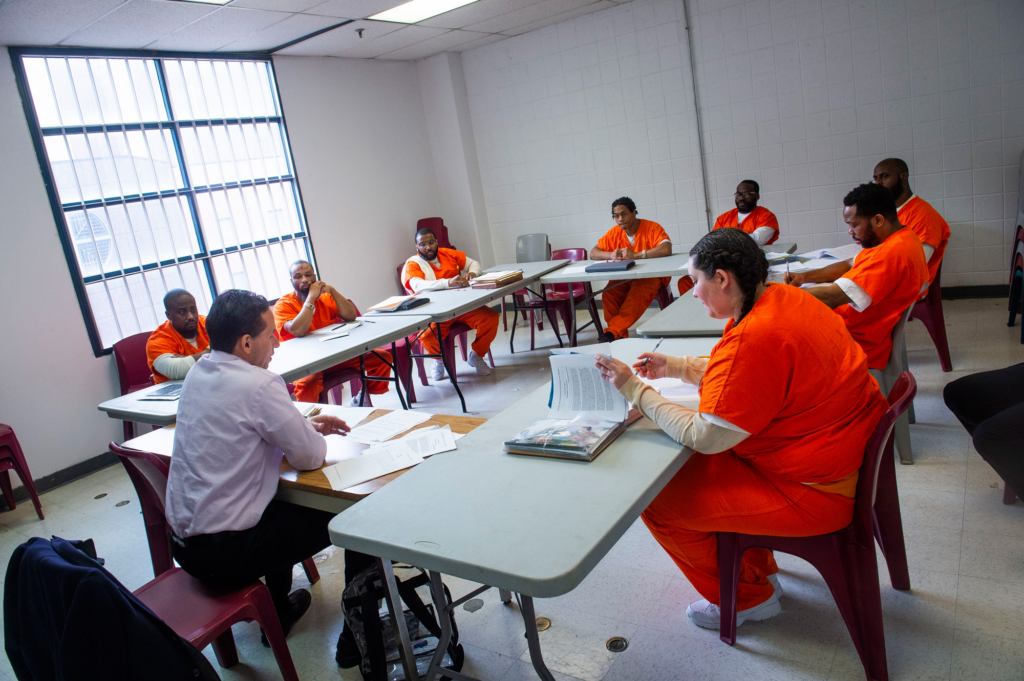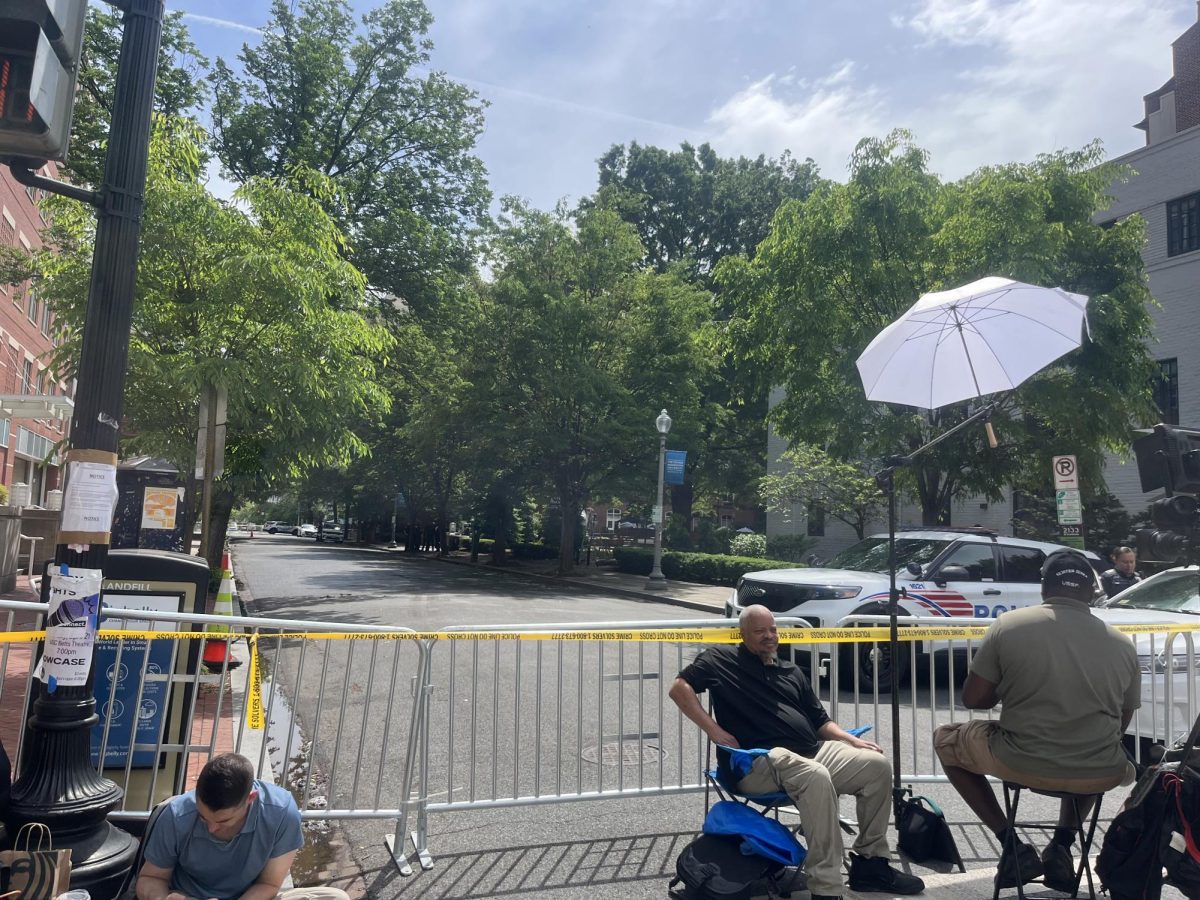The Georgetown University Prisons and Justice Initiative (PJI) opened applications for their first full bachelor’s degree program.
Applications for the PJI bachelor’s degree, a five-year program for incarcerated people, opened on Sept. 20 and will close on Oct. 29, according to Joshua Miller, director of education for PJI. Accepted students will take classes with Georgetown faculty starting in January 2022 at the Patuxent Institution, a treatment-oriented correctional facility, in Jessup, Md. Students are expected to remain in the program for five years and take a total of 120 credit hours, the same amount required for Georgetown undergraduates.
Joe Napolitano, the assistant director of education at the PJI, said the program aims to transform the lives of its students during and beyond their time in prison.
“We believe deeply in the value of a liberal arts education,” Napolitano said in a phone interview with The Hoya. “We believe that it’s for anyone and everyone. In some sense, I want our incarcerated students to get out of their Georgetown degree exactly what we would want main campus undergraduates to get out of the degree.”
PJI will accept 25 people from across the Maryland prison system into the first cohort of students to complete the program. Those not currently in Patuxent will be transferred to the facility to complete the program. Participants will have the choice of majoring in either cultural humanities, interdisciplinary social science or global intellectual history.

taking a total of 120 courses with similar core requirements to those of the
main campus at the Patuxent Institution in Jessup, Md.
One of the program’s primary goals is to ensure that incarcerated students feel a part of the Georgetown community, according to Marc Howard, the founding director of the PJI.
“It’s to contribute to changing the narrative about incarcerated and formerly incarcerated people by showing that they have value and abilities that can be rewarded and supported and that they can become role models through the idea of second chances,” Howard said in a phone interview with The Hoya.
The new program is an extension of the PJI’s Prison Scholars program, which currently offers a number of both credit and noncredit classes and programs to incarcerated people in the D.C. Central Detention Facility. These include the Pivot Program, a certificate in business and entrepreneurship for formerly incarcerated people, and the Mayor’s Office on Returning Citizen Affairs (MORCA) and Georgetown Paralegal Program, which trains experienced previously incarcerated individuals for legal careers.
The PJI has worked over the past years to expand the credit options for the classes being offered to passionate and excited students, which has culminated in this degree program, according to Joshua Miller, the director of education for the Prison Scholars program.
“I can tell you pretty confidently, having been doing this for almost a decade, that these students are going to be phenomenal, they’re going to be excited and they’re going to be everything you expect from a Georgetown first-year student,” Miller said in a Zoom interview with The Hoya.
Students will begin the program by taking core classes similar to those offered on the main campus, including introductory philosophy classes and “Problem of God,” a required first-year theology course, according to Napolitano.
The PJI is also collaborating with the Academic Resource Center (ARC), the library and various other research and tutoring programs to provide a full range of academic support, according to Miller.
“The university community has been very supportive, from the College to the Provost to the President’s office,” Napolitano said. “Everyone has recognized that the work that PJI does is important and is deeply connected to the mission of the university. We couldn’t be more grateful for the support of everyone at Georgetown.”
This program is deeply connected to the university’s Jesuit values and represents the core principles that Georgetown strives toward, according to Miller.
“Education is a human right,” Miller said. “It is evident that there is a tremendous amount of potential inside, that there are intelligent, curious, conscientious human beings behind the walls, and we’re wasting all of the talent back there. We should work to end the systems that lead to so many of our fellow citizens being incarcerated.”
The PJI plans to expand the program to admit new cohorts of students in subsequent semesters to expand access to degrees for more incarcerated people, according to Howard.
“My hope is that in a few years from now, it’ll be a bustling educational environment with students hustling from class to class and discussing and engaging and learning and just being excited about the whole education process,” Howard said.




















